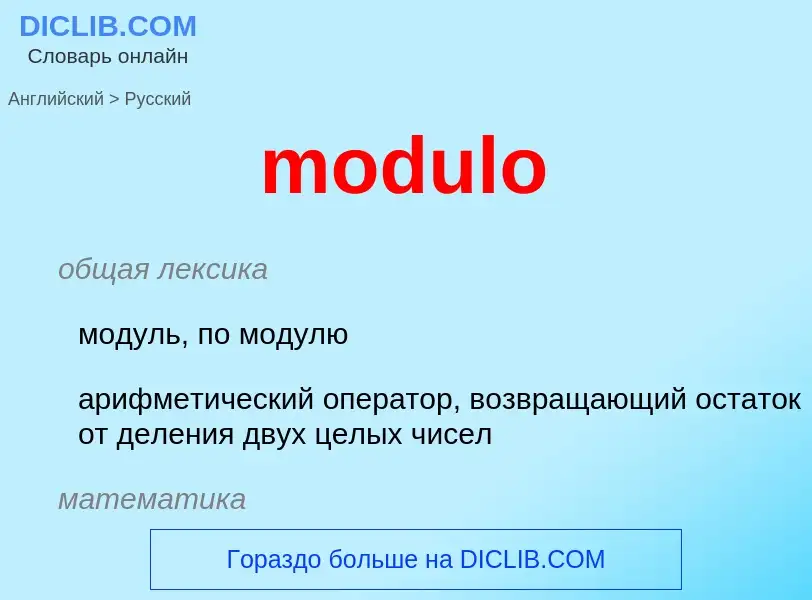Перевод и анализ слов искусственным интеллектом
На этой странице Вы можете получить подробный анализ слова или словосочетания, произведенный с помощью лучшей на сегодняшний день технологии искусственного интеллекта:
- как употребляется слово
- частота употребления
- используется оно чаще в устной или письменной речи
- варианты перевода слова
- примеры употребления (несколько фраз с переводом)
- этимология
modulo - перевод на Английский
общая лексика
модуль, по модулю
арифметический оператор, возвращающий остаток от деления двух целых чисел
математика
по модулю
Смотрите также
Определение
Википедия
In computing, the modulo operation returns the remainder or signed remainder of a division, after one number is divided by another (called the modulus of the operation).
Given two positive numbers a and n, a modulo n (often abbreviated as a mod n) is the remainder of the Euclidean division of a by n, where a is the dividend and n is the divisor.
For example, the expression "5 mod 2" would evaluate to 1, because 5 divided by 2 has a quotient of 2 and a remainder of 1, while "9 mod 3" would evaluate to 0, because 9 divided by 3 has a quotient of 3 and a remainder of 0; there is nothing to subtract from 9 after multiplying 3 times 3.
Although typically performed with a and n both being integers, many computing systems now allow other types of numeric operands. The range of values for an integer modulo operation of n is 0 to n − 1 inclusive (a mod 1 is always 0; a mod 0 is undefined, possibly resulting in a division by zero error in some programming languages). See Modular arithmetic for an older and related convention applied in number theory.
When exactly one of a or n is negative, the naive definition breaks down, and programming languages differ in how these values are defined.

